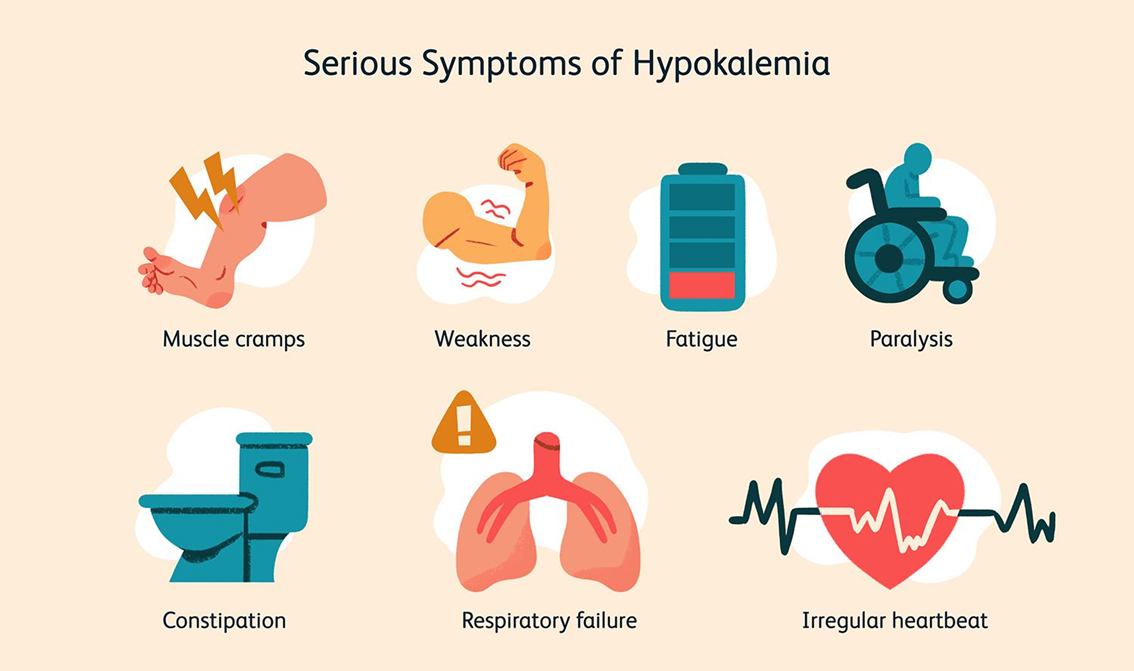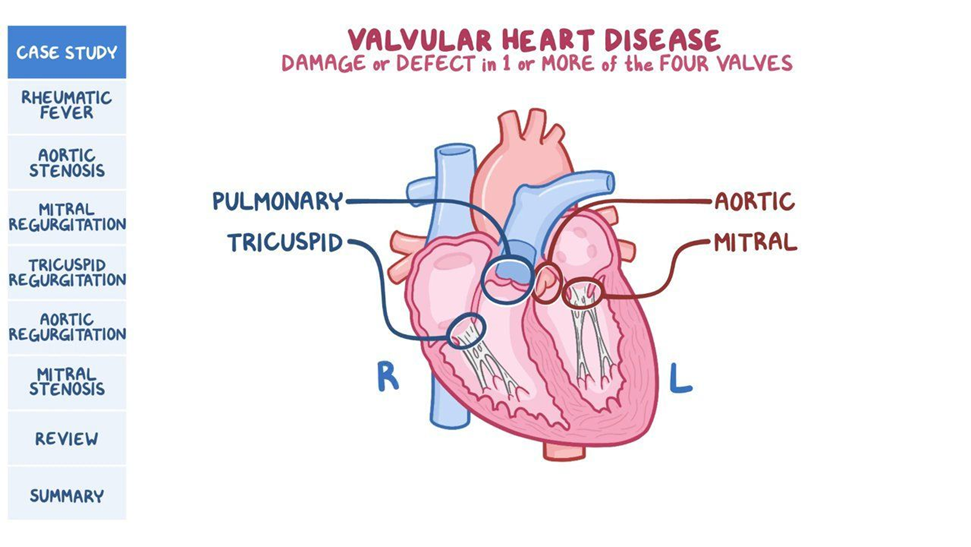A nurse is providing care for a client with hypokalemia. Which condition should the nurse monitor for?
Hypertension
Ketosis
Insulin resistance
Cardiac arrhythmias
The Correct Answer is D
Choice A reason: Hypertension is not directly caused by hypokalemia. While potassium levels can influence blood pressure, hypokalemia is more critically associated with cardiac issues rather than hypertension alone.
Choice B reason: Ketosis is a metabolic state resulting from the body burning fat for fuel instead of carbohydrates. It is not directly related to hypokalemia. Hypokalemia does not cause ketosis, and monitoring for ketosis in a client with hypokalemia is not a priority.
Choice C reason: Insulin resistance is a condition where the body’s cells do not respond properly to insulin. While potassium levels can affect insulin secretion and action, hypokalemia is not primarily associated with insulin resistance. Therefore, it is not the main concern for a nurse monitoring a client with hypokalemia.
Choice D reason: Cardiac arrhythmias are a significant concern in clients with hypokalemia. Potassium is crucial for proper cardiac function, and low levels can lead to abnormal heart rhythms. This is why monitoring for cardiac arrhythmias is essential in clients with hypokalemia.

Nursing Test Bank
Naxlex Comprehensive Predictor Exams
Related Questions
Correct Answer is D
Explanation
Choice A reason: Hypertension is not directly caused by hypokalemia. While potassium levels can influence blood pressure, hypokalemia is more critically associated with cardiac issues rather than hypertension alone.
Choice B reason: Ketosis is a metabolic state resulting from the body burning fat for fuel instead of carbohydrates. It is not directly related to hypokalemia. Hypokalemia does not cause ketosis, and monitoring for ketosis in a client with hypokalemia is not a priority.
Choice C reason: Insulin resistance is a condition where the body’s cells do not respond properly to insulin. While potassium levels can affect insulin secretion and action, hypokalemia is not primarily associated with insulin resistance. Therefore, it is not the main concern for a nurse monitoring a client with hypokalemia.
Choice D reason: Cardiac arrhythmias are a significant concern in clients with hypokalemia. Potassium is crucial for proper cardiac function, and low levels can lead to abnormal heart rhythms. This is why monitoring for cardiac arrhythmias is essential in clients with hypokalemia.

Correct Answer is ["A","B","D"]
Explanation
Choice A reason:
Heart murmur is a common manifestation of valvular dysfunction. It occurs when there is turbulent blood flow across a damaged or abnormal heart valve. This can be due to stenosis (narrowing of the valve) or regurgitation (leakage of the valve). The murmur’s characteristics, such as timing, location, and intensity, can help in diagnosing the specific type of valvular disease. For example, a systolic murmur might indicate aortic stenosis or mitral regurgitation, while a diastolic murmur could suggest aortic regurgitation or mitral stenosis.

Choice B reason:
Chest pain is another symptom that can be associated with valvular dysfunction. This pain can result from increased workload on the heart due to inefficient blood flow through the valves. Conditions like aortic stenosis can lead to angina (chest pain) because the heart muscle may not receive enough oxygenated blood. This symptom is particularly concerning and warrants immediate medical attention to prevent complications such as myocardial infarction.
Choice C reason:
Varicose veins are not typically associated with valvular dysfunction in the heart. They are more related to issues with the veins in the legs, where the valves that prevent backflow of blood become weakened or damaged. This condition is generally referred to as chronic venous insufficiency and is not directly linked to the heart’s valvular problems.
Choice D reason:
Palpitations, or the sensation of irregular or rapid heartbeats, are common in clients with valvular dysfunction. These can occur due to arrhythmias, which are often seen in conditions like mitral valve prolapse or aortic regurgitation. The irregular heartbeats can be a result of the heart trying to compensate for the inefficient blood flow caused by the faulty valve.
Choice E reason:
Abdominal pain is not a typical manifestation of valvular dysfunction. While severe heart conditions can sometimes lead to generalized symptoms, abdominal pain is more commonly associated with gastrointestinal issues rather than heart valve problems. Therefore, it is not a primary symptom to anticipate in clients with valvular dysfunction.
Whether you are a student looking to ace your exams or a practicing nurse seeking to enhance your expertise , our nursing education contents will empower you with the confidence and competence to make a difference in the lives of patients and become a respected leader in the healthcare field.
Visit Naxlex, invest in your future and unlock endless possibilities with our unparalleled nursing education contents today
Report Wrong Answer on the Current Question
Do you disagree with the answer? If yes, what is your expected answer? Explain.
Kindly be descriptive with the issue you are facing.
